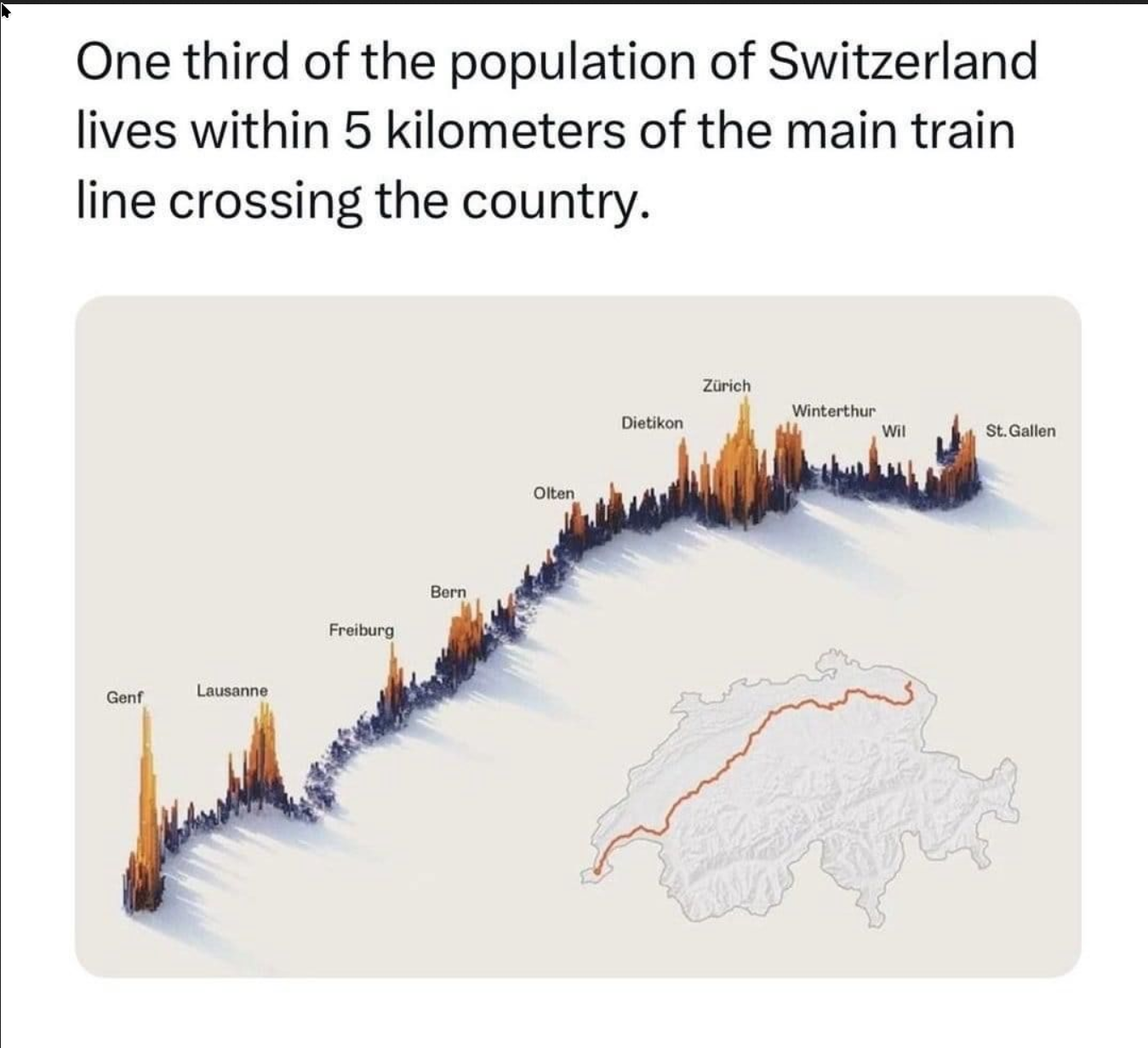this post was submitted on 26 Jun 2024
271 points (97.5% liked)
Data is Beautiful
852 readers
4 users here now
Be respectful
founded 5 months ago
MODERATORS
you are viewing a single comment's thread
view the rest of the comments
view the rest of the comments

Isn't this statement kinda backwards though? Surely the big cities developed along that line due to the natural geography (flat land, near bodies of water and with protection from the mountains) and then once trains first came along, it made sense to connect those cities. It's not that people happen to live within 5km of the trainline, but that the trainline was built there because that's where people lived.
I see where you come from, but I guess it's still uncommon to have a third of a country living on a line
Also, the data looks quite good, which is the main objective of this community
Yeah it's pretty data for sure. Just the conclusion that has been drawn from it is a bit odd! Correlation/causation etc etc
mmm... no, it's exactly what you'd expect in a country chock fulla mountains. terrain dictates where roads, rails AND TOWNS grow.
They have to...lol. There's no other way to travel efficiently.
Canada
Chile
I bet US can get something similar for NE corridor
Switzerland is about as big as Vermont and New Hampshire.
NE corridor is 100m people
for real, more people live in new york alone than do in finland
Not as big a portion of the country, but yeah coastal areas will often have a large population living in roughly a line.
In North America I believe the line connecting the most people would go from Quebec City through Montreal, Ottawa, Toronto, London, Detroit, Chicago, Milwaukee and Minneapolis (though maybe not within just 5 km of it). This is the most populous part of the Great Lakes Megalopolis and into the St. Lawrence.
Could be, feel free to post a similar study on that region if you find one!
I believe something like 80% of the population of Brazil live within 50 km of the coast.
Given the size and geography of the country, one might expect this.
You’re absolutely right. That train runs across the Swiss Plateau with mountains either side of the plateau. Historically, if you were going to grow any produce, that was where you would grow it so it’s no surprise there’s such a density of people in the flatter part of an extremely mountainous country.
But train lines develops cities. I know that when a train line that connects big cities extends to smaller town they boom.